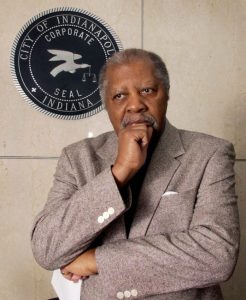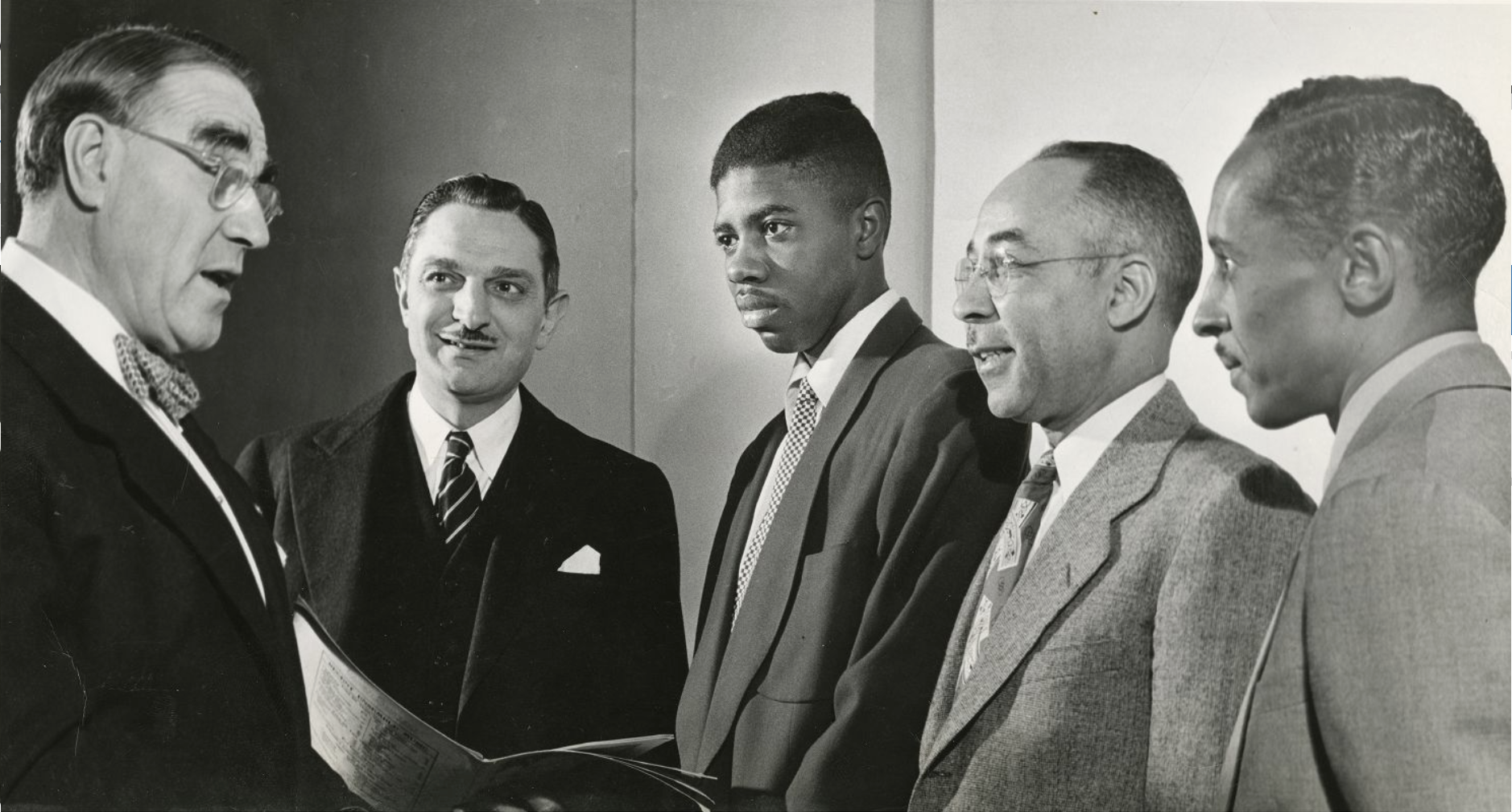
Photo info ...
Pictured: Indianapolis City-County Council Democratic leader Rozelle Boyd, 2003Credit: CHARLIE NYE / USA TODAY NETWORKView Source
(Apr. 24, 1931-July 21, 2022). Rozelle Boyd was born in Indianapolis. He attended segregated George Washington Carver School No. 87 and . He briefly attended Indiana Central College before transferring to from where he graduated with a B.A. in U.S. History and Political Science in 1957.
Upon graduation, Boyd took a job at Attucks teaching U.S. History and Government, never intending to become a politician. On June 22, 1959, he and two other Attucks teachers became the recipients of a grant allowing them to take a 6-week Guidance Counseling Training Course at Northwestern University. Boyd added to his teaching duties by counseling students in Attucks’ adult education program. Boyd himself continued his education as a Lilly Fellow, graduating with an M.A. in U.S. History from Indiana University in 1964.
Boyd took an interest in global outreach opportunities while simultaneously teaching. From 1963 to 1966, he worked with the Operation Crossroads Program, similar to the Peace Corps, on construction projects in Africa. Three times, Boyd led delegations of North American students to Southern Africa (now Botswana), Ethiopia, and Senegal to build schools, clinics, and libraries.

Civic leader and then- Democratic Chairman Jim Beatty encouraged Boyd to run for the county council which, in the pre- years still remained separate from the city council. He ran in 1965 becoming the first African American to win a seat. He joined the council at a time when civil rights for Black people had just been enacted into law. Despite the turbulent period in history, Boyd continued to win election after election, though his party consistently remained in the minority.
After 11 years at Attucks, Boyd took a position at Indiana University as the assistant dean for University Division from 1968 to 1975. In addition to his role as dean, he lectured in African American Studies courses. Furthermore, Boyd founded and directed the IU Groups Scholars Program, which seeks to increase college attendance rates among first-generation, low-income, and physically challenged students. Still active, the program assists approximately 300 students each year as they adjust to the challenges of college life.
Politically, Boyd supported the Republican gamble to construct and the during the early years of the administration. Boyd’s support earned him a spot on the informal yet exclusive “City Committee,” a tight circle of public and private downtown development visionaries. Boyd and were the only two African Americans in the group had formed during his mayorship.
In 1989, Boyd created the Citizens Police Complaint Board. Though the objected to its formation, Boyd urged its creation in the wake of the suspicious circumstances around the death of 16-year-old in the back of a police vehicle.
Legislatively, Boyd did not shy away from bringing attention to controversial social issues. His proposal for an anti-apartheid measure calling for economic sanctions against South Africa met defeat in 1985. However, he was instrumental in pushing for an amendment to Indianapolis’ human rights ordinance that included protections for the LGBTQ community, a difficult task in the early 2000s.
Boyd became the first Black and Democratic president in 2004. He and his party had to learn how to govern since no Democrat had been elected president prior to 2004, and only half a dozen have been elected since then. His term lasted just one year when his former Attucks student, Steve Tally unseated him with Republican backing. In 2007, Boyd lost his bid for reelection. Still, with 42 years of service, he was the longest serving city-councilman in Indianapolis history.
Rozelle Boyd was a role model for future generations of African Americans as well as a Renaissance Man. During his life, he served on countless community boards including the . He was a member of Alpha Phi Alpha fraternity, the oldest intercollegiate historically African American fraternity, founded at Cornell University on December 4, 1909. Few know of Boyd’s musical talent playing the double bass. With his band, Rozelle Boyd’s Tempos, later renamed the Rozelle Boyd Combo, he, his brother on sax, and James DuPee on piano performed in venues and event spaces along in the early 1960s.

Help improve this entry
Contribute information, offer corrections, suggest images.
You can also recommend new entries related to this topic.